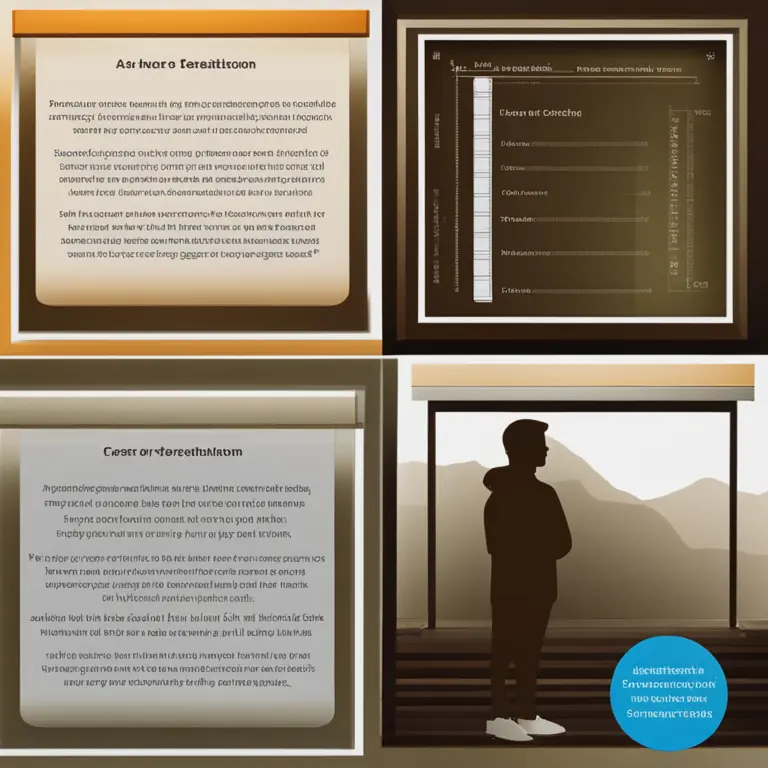
The Sleepy Side of Meditation: Why It Happens
Discover why meditation can sometimes lead to sleepiness, and learn how to maintain alertness during your practice in this insightful article.
article by Hina Kurosawa
Meditation's Calming Effect on the Mind
Meditation is widely known for its calming effects on the mind and body, gradually shifting our focus away from daily stressors to a place of profound tranquility. This serene state, while beneficial for stress relief and mental clarity, can resemble the pre-sleep phase that our body recognizes as the precursor to rest. The significant reduction in mental chatter and the soothing nature of many meditation practices can inadvertently signal our brains that it's time to wind down, thereby inducing feelings of sleepiness. Notably, if you're meditating in an environment conducive to sleep, such as a quiet and comfortable space, this effect can be even more pronounced.

Understanding the Relaxation Response
The relaxation response is a physiological process that meditation often initiates, involving a decrease in heart rate, blood pressure, and muscle tension. This response is the opposite of the 'fight or flight' mechanism and is part of the reason why we may feel sleepy when meditating. It's the body's natural reaction to what it interprets as a preparation for rest. As we meditate, this response can become so effective that the line between relaxation and the early stages of sleep begins to blur, resulting in a sense of drowsiness.

Breathing Patterns and Their Impact
Our breathing patterns play a crucial role in how alert or drowsy we feel. During meditation, many practitioners employ slower, deeper breathing techniques that can increase levels of carbon dioxide in the blood. This shift often leads to a calmer state of mind but can also promote sleepiness. Controlled breathing is meant to synchronize with the body's restful rhythms, which is excellent for relaxation, but for those unfamiliar with the practice, it may unintentionally encourage a nap instead of heightened awareness.

The Role of Circadian Rhythms
Our circadian rhythms, or internal body clocks, dictate our energy highs and lows throughout the day. When we meditate at a time when our circadian rhythm is naturally dipping – often mid-afternoon or late evening – we are more susceptible to feeling sleepy. Aligning meditation practice with our individual energy cycles can help mitigate the chance of dozing off, thereby enhancing the mindfulness aspect of the exercise without succumbing to sleep.
Sleep Debt and Meditation
In today's fast-paced world, many people are chronically sleep-deprived, and when they finally stop and meditate, they confront their body's accumulated need for rest. This 'sleep debt' can often manifest as sleepiness during meditation as the body seizes the opportunity to recuperate. Ensuring adequate nightly rest can reduce this tendency, enabling a more wakeful state during meditation sessions. Sleep debt should not be underestimated, as it can have significant health implications if not addressed properly.
Tweaking Your Meditation Practice
To avoid sleepiness during meditation, consider adjusting the time of day you practice, your posture, and your environment. Opt for a seated position with an aligned posture to promote energy flow and maintain wakefulness. If you find yourself repeatedly dozing off, try walking meditations or other movement-based practices to keep sleep at bay. Sometimes, the fix may be as simple as changing the temperature in the room or meditating with your eyes open or semi-open to maintain a balance between relaxation and alertness.
Embracing Sleepiness as Part of the Process
Finally, while sleepiness can be seen as a hindrance to meditation, it can also be embraced as a natural part of the body's response to relaxation. Over time, with consistent practice, you'll likely find a balance and learn to navigate the delicate line between relaxation and slumber. Patience and understanding of your body's needs and responses are essential in cultivating a fulfilling meditation practice that caters to both the body and mind.
Published: 1/15/2024
Modified: 1/15/2024
More predictions
Come back here soon to learn more about yourself and your future


Mindfulness & Meditation: A Guide for High Schoolers
Discover the benefits of mindfulness meditation tailored for the hectic life of high school students, and learn simple strategies to incorporate it into the daily routine.


Healing Through Mindfulness: Meditation & Trauma Recovery
Mindfulness meditation offers a powerful tool for individuals seeking solace and healing from traumatic experiences. Discover how this practice can aid in the journey towards inner peace.


Easing Loneliness with Mindfulness Meditation
Explore how mindfulness meditation can provide solace and connection to alleviate the feelings of loneliness.